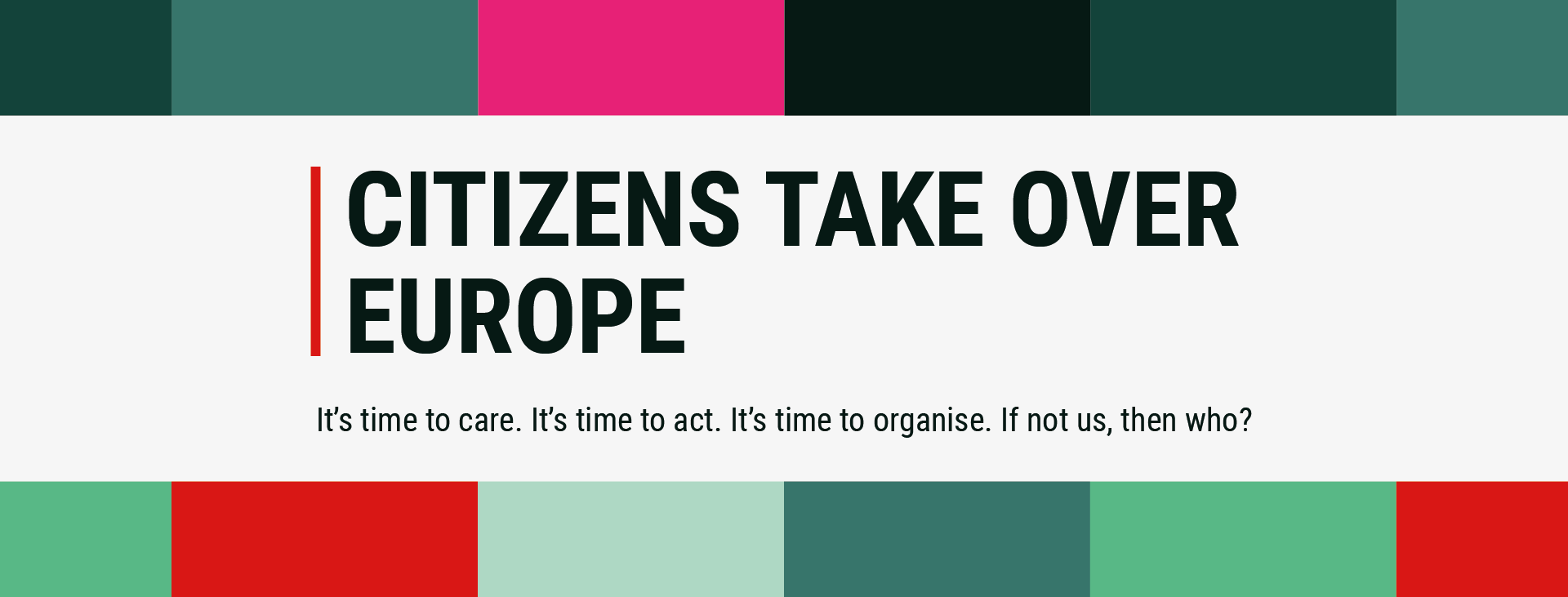
- This event has passed.

The Citizens Take Over Europe coalition advocates that citizens and residents of Europe should be at the center of the debate. There are many ways to look at the role of citizens within the process of European integration.
Claudio Radaelli offers a view from the ERC project Protego as part of the event ‘ For a Citizens-centered conference on the future of Europe’.
The discussion is moderated by Nicolò Milanese (European Alternatives) and Virginia Fiume (EUmans)
Here is a snapshot of professor Radaelli’s remarks:
In the European Union citizens delegate power to their elected politicians who form a government. The ministers from the 27 governments then make decisions in the various Council’s formations. The bureaucracy of the EU, that is, the European Commission, is tasked to initiate legislation and to oversee policy coordination. It does not take too much imagination that this chain of delegation from the citizens to other actors is particularly long.
There are many points along the chain where the preferences of citizens can be ignored or circumvented. One solution is to enter citizens into the lawmaking process with the European Citizens’ Initiative. Another is to supplement representative democracy with moments of participatory democracy in the EU and make the two dimensions (representation and participation) complementary. But our work on regulatory procedural instruments suggests yet another option. It is the option of making the core actors in the law-making process of the EU accountable to preferences and interests that they would not normally consider.
It is unrealistic to assume that the Commission’s choices and the decisions of ministers in the Council would be responsive to the preferences of individual citizens – for this, the best proxy is the European Parliament. However, we can demand a set of obligations and rights that impose the consideration of dimensions that open up the policy process to preferences that are other from those of political consensus and bureaucratic interest. In practice, this means imposing obligations to consider evidence and science in the formulation and justification of policy choices, to consult widely, to be open to scrutiny for maladministration to bodies that do not respond to politicians and bureaucracies. These obligations and rights (to consultation, to access documents, to transparency of evidence-base of decisions) exist in regulatory procedures such as consultation, impact assessment, freedom of information, and the Ombudsman.
Citizens can also ask for judicial review of regulations. All these procedures bring in values that citizens care about – they do not provide a sample of their preferences, but they enfranchise specific values and norms (such as transparency). In this context – Claudio adds – it is important for the EU debate to keep an eye on the emergence of the right to science as defined in a recent commentary of the United Nations.
The Parliamentary Assembly of the Council of Europe is about to start working on the ‘Right to Know’ this summer. These episodes contain lessons for the EU: institutional reforms may take time to appear, participatory democracy is not settled yet, but the regulatory procedures described above already exist. They have to be embraced and used by citizens and the public interest associations, above all organizations that promote the freedom of science and evidence-based policy in the EU, like Science for Democracy.
Final remarks from prof Radaelli
